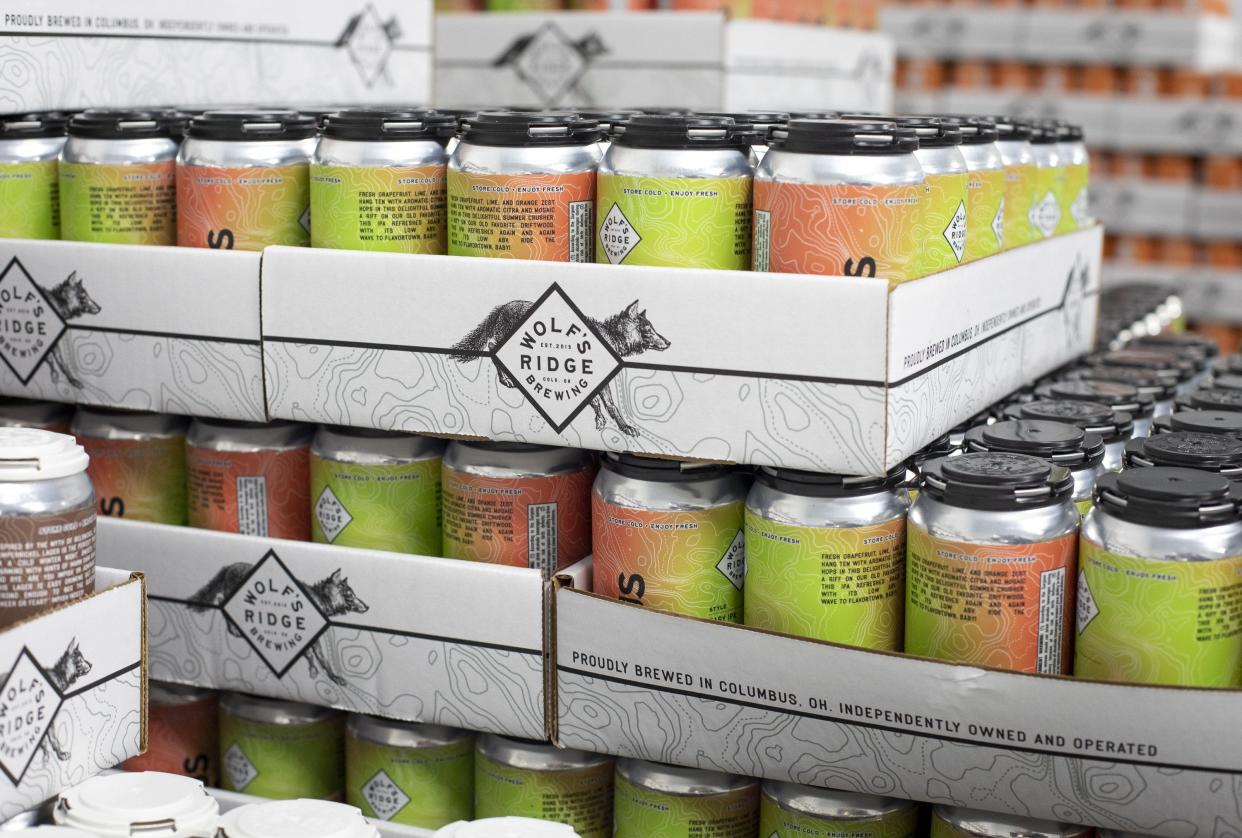David vs. Goliath? Craft brewers say Ohio law puts beer distributors before small business

Land-Grant Brewing Company distributed its own beer when the popular Columbus brewery first launched.
After four years, it was time for a change. Co-founder Adam Benner said Land-Grant wanted to focus on brewing and selling and leave distribution to the experts: wholesalers. The move spurred the brewery's growth and put its beer on more shelves across Ohio.
"They've given us access to markets that we never had access to before like, convenience stores," Benner said. "Speedways, UDF, they don't want to work with small breweries. They don't want to work with independent distributors because they don't have the space. ... They just want to get beer and get people in and out of their stores."
The partnership between breweries and wholesalers is an integral part of the beer industry. Distributors help bring Ohio's favorite IPAs and stouts from Columbus, Cincinnati and Akron to local bars, groceries stores and gas stations in Cleveland or Dayton.
But craft brewers have become increasingly frustrated with a state law that dictates how these partnerships work. And they're ready to make some noise about it.
Craft breweries push change to franchise law
Known as a franchise law, Ohio statute requires breweries that want to partner with a distributor to enter into a written agreement with that company. These contracts can only be broken if a party provides "just cause" for termination, or if one of them enters into bankruptcy.
Smaller breweries in Ohio can also self-distribute, like Land-Grant once did.
The law, first established in 1974, was designed for a time before the craft beer boom. Small distributors wanted safeguards against a handful of mega breweries that dominated the industry. Now, the power dynamic has shifted: There are more than 400 craft breweries in Ohio and fewer wholesalers, which consolidated to serve larger geographic areas.
The result, according to craft brewers: Wholesalers have more power, while breweries are handcuffed to distribution deals that might not be good for business.
"What happens if they don't perform the way that we expected them to or the way they agreed to?" said John Haggerty, co-founder of Warped Wing Brewing Company in Dayton. "In any other business, you would go and say, 'Hey, I want to find an alternative logistics company to help me do this.' But I'm not allowed to. It's impossible right now with the way that the state law is written."
A 2022 U.S. Treasury report found state franchise laws can restrict competition in the beer, wine and spirits industry. Federal officials said they burden smaller craft breweries that rely more heavily on distributors, but can't as easily cover the costs of contract termination when needed.
"These laws have the effect of encouraging opportunism by distributors, thereby increasing the cost of producing and inhibiting the growth of craft producers," the report stated.
In response, the Ohio Craft Brewers Association is launching a campaign to encourage state lawmakers to revisit the policy. Specifically, the group wants breweries that produce under 250,000 barrels to be exempt so they can more easily cut ties with a distributor if necessary.
Does Ohio law limit beer access?
Distributors, for their part, don't see a problem.
The current law gives breweries and wholesalers the flexibility to hash out specific needs through their agreement, said Jacob Evans, legislative affairs counsel for the Wholesale Beer & Wine Association of Ohio. He said wholesalers today can operate more efficiently after consolidating and accept contracts from both craft breweries and larger companies like Anheuser-Busch.
Evans also disputed that these contracts are impossible for breweries to cancel, saying they have the chance to define what "just cause" looks like.
The Ohio Chamber of Commerce has not taken a position on the franchise law.
Distributors contend the alcohol and beverage industry offers more choices to consumers than other goods. They're only limited by what space grocery stores will set aside for those products, Evans said.
But critics of the franchise law say it can hamstring distribution and ultimately affect what beers are sold and where. Changing the rules is the best way to remedy that, they argue.
"It'll actually encourage more breweries to participate in the wholesale market, so it should result in greater choices on the shelf in various parts of the state," Haggerty said.
Benner and other brewers who attended a Wednesday news conference at the Ohio Statehouse said they like their current wholesale partners. Still, Benner said Land-Grant won't sign any new agreements with distributors until this issue is resolved.
"We have a lot of people asking for our beer, and their access to our beer is limited because we don't want to enter into a never-ending agreement," he said.
Haley BeMiller is a reporter for the USA TODAY Network Ohio Bureau, which serves the Columbus Dispatch, Cincinnati Enquirer, Akron Beacon Journal and 18 other affiliated news organizations across Ohio.
Get more political analysis by listening to the Ohio Politics Explained podcast
This article originally appeared on The Columbus Dispatch: Ohio craft brewers say outdated law limits consumer choice

